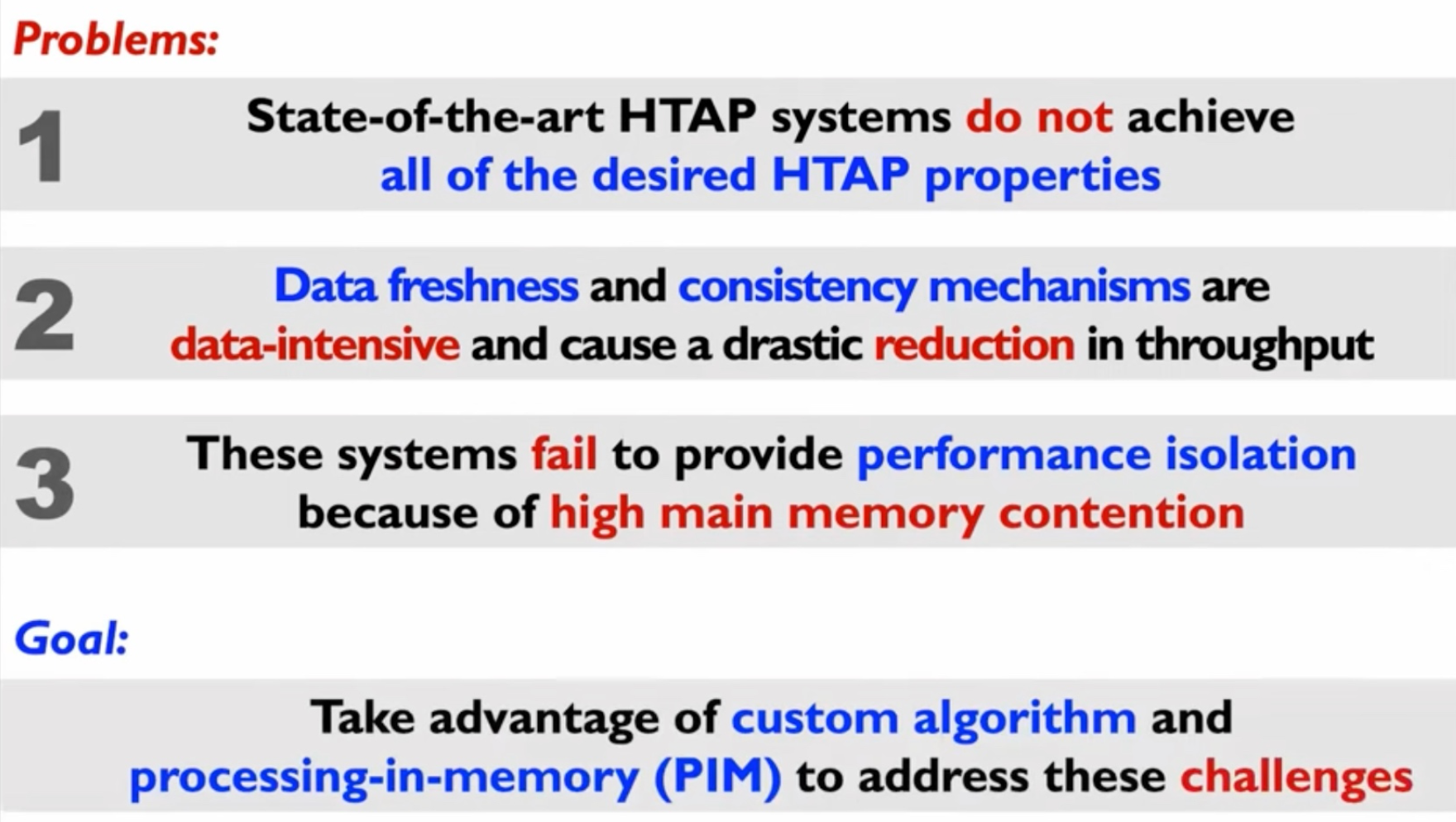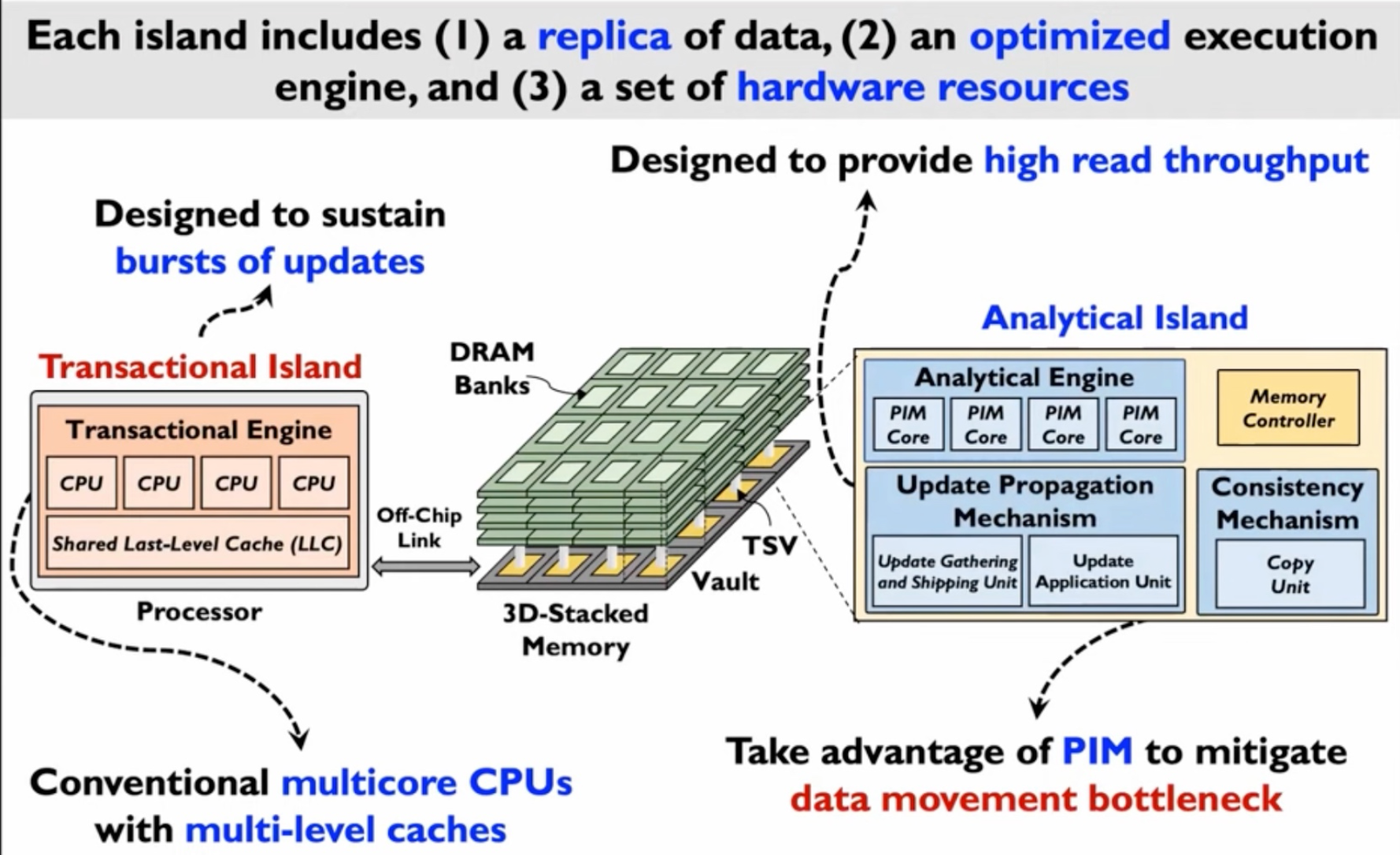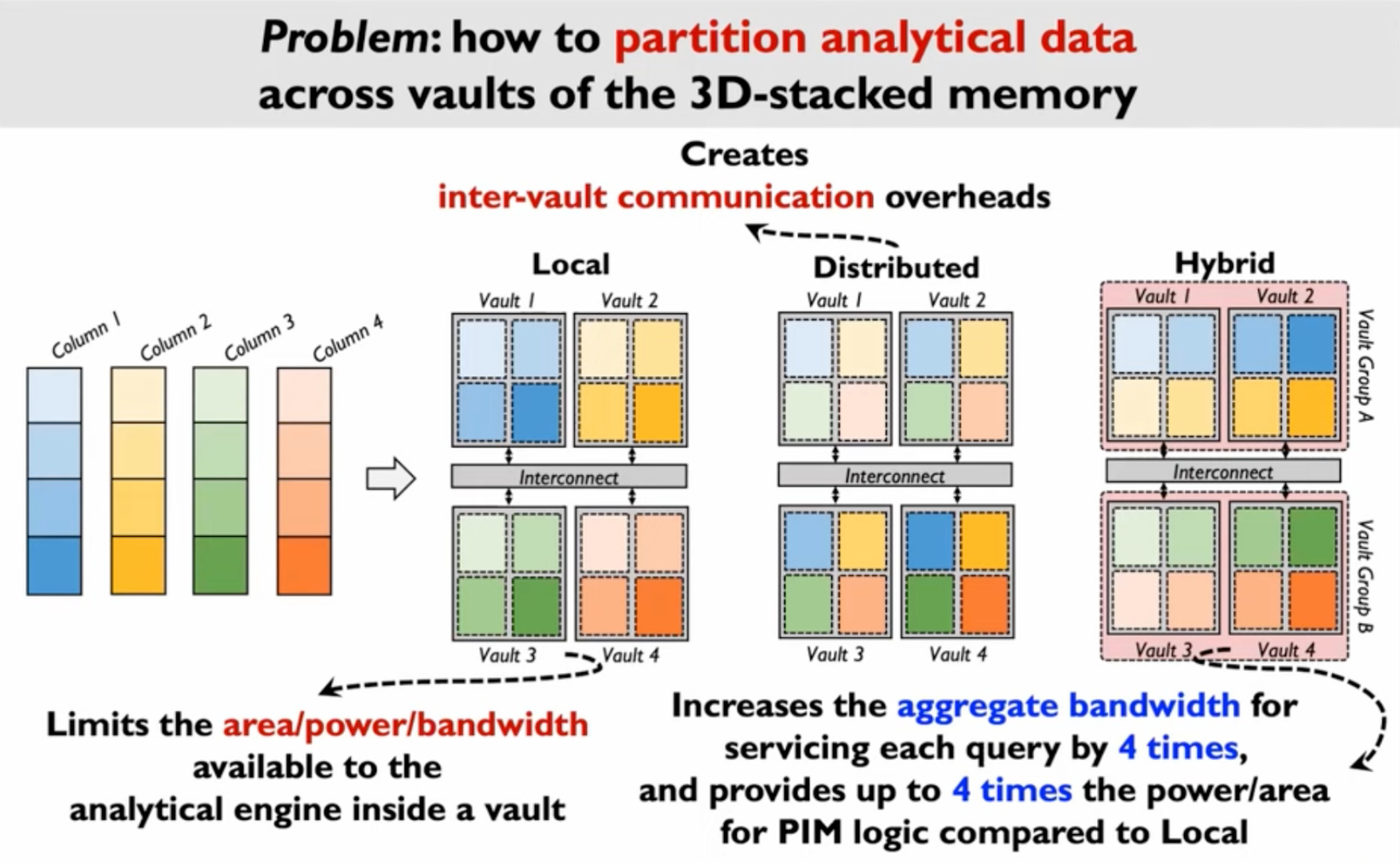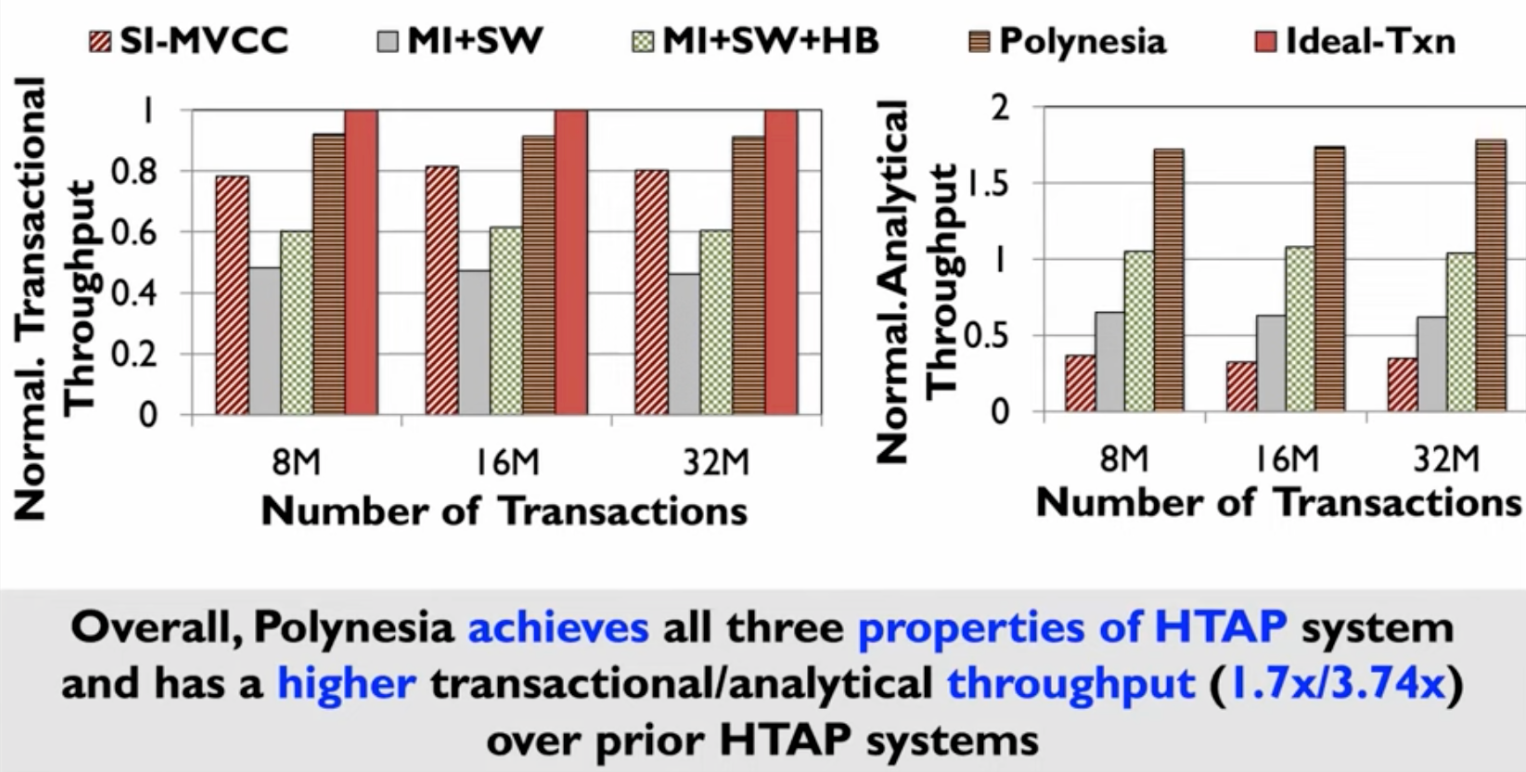Brief
Nowadays, many applications need to perform real-time data analysis using an HTAP system. An ideal HTAP system should have three properties:
- Data freshness and consistency.
- Workload-specific optimization.
- Performance isolation.
However, prior works cannot achieve all these properties. The paper divides the system into transactional and analytical processing islands, which enables workload-specific optimizations and performance isolation. It introduces Polynesia, a novel hardware/software cooperative design for in-memory HTAP databases. Polynesia implements custom algorithms and hardware to reduce the costs of data freshness and consistency. It also exploits PIM for analytical processing to alleviate data movement. In result, Polynesia has average transactional/analytical throughput improvements of 1.7x/3.7x and 48% reduction on energy consumption, compared to three state-of-the-art HTAP systems.
Design and Evaluation
The key idea of Polynesia is partition computing resources into two types of isolated and specialized processing islands. By isolating transactional islands from analytical islands, Polynesia apply workload-specific optimizations to each island, avoid high main memory contention, and design efficient data freshness and consistency mechanism without incurring high data movement costs.




Reference
- Boroumand, A., Ghose, S., Oliveira, G.F., Mutlu, O., 2022. Polynesia: Enabling High-Performance and Energy-Efficient Hybrid Transactional/Analytical Databases with Hardware/Software Co-Design, in: 2022 IEEE 38th International Conference on Data Engineering (ICDE). IEEE, pp. 2997–3011. [paper][video1-short][video2-long]